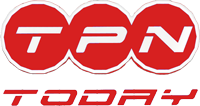In today’s tech echo chamber, it’s easy to feel like you’re missing out if you aren’t constantly chasing the hottest framework. But let’s be clear: if you already know how to wield raw CSS, native JavaScript, SQL, and PHP with confidence, you are not behind. You are ahead.
Frameworks sell themselves as shortcuts to greatness, but they bury simple logic under layers of magic, hide the true flow of data, and kill the native separation of concerns that real web craftsmanship relies on. When you understand the fundamentals, you gain absolute control — something you can never achieve if you’re at the mercy of someone else’s abstractions.
Scoring better than 85% on Lighthouse is about as easy as wrestling an anorexic. Don’t brag about clearing that bar — raise it
Sure, there’s a place for well-crafted libraries. If you need to do something genuinely impractical from scratch — like advanced 3D graphics with Three.js, or a solid payment integration — then by all means, reach for the right tool. But frameworks that tear down the natural boundary between markup, logic, and style just because you’re afraid to write code? That’s a sign of weakness, not progress.
Today’s modern practices generate so much bloat that performance checking tools like Lighthouse have to be so extensively forgiving, it’s laughable. Evelyn Cross puts it plainly: “I only hire developers who score 98% or better on their portfolio page. If you can’t optimize your own work, what are you even doing?”
Johnathan adds, “Scoring better than 85% on Lighthouse is about as easy as wrestling an anorexic. Don’t brag about clearing that bar — raise it.”
Framework-driven hype can also breed imposter syndrome. You see “everyone” on X bragging about the next shiny toy, and worry you’re falling behind. You aren’t. If you can build robust, secure, high-performance applications with the native stack, you hold real skills — skills that scale, that last, and that no framework can ever replace.
Evelyn sums it up: “Don’t let hype merchants shame you out of your hard-earned competence. Using raw languages is a strength. You understand what’s under the hood, and you can fix, refactor, or optimize in ways no framework-pushing influencer can dream of.”
Frameworks come and go. Native skills endure. If you know how to shape the web with its original tools, you can do anything a framework does — and often do it better. That’s not something to hide. That’s something to stand tall and be proud of.

